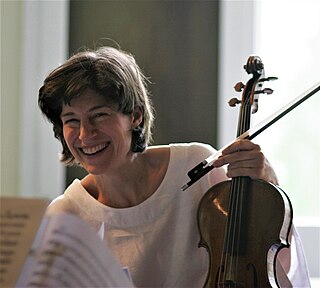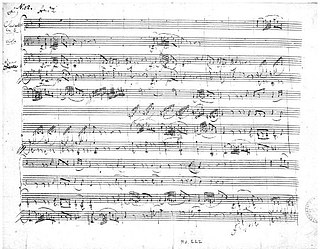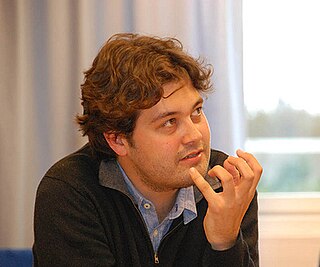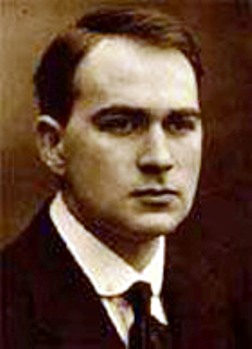Related Research Articles

A viola concerto is a concerto contrasting a viola with another body of musical instruments such as an orchestra or chamber music ensemble. Throughout music history, especially during the Baroque, Classical, Romantic eras, viola was viewed mostly as an ensemble instrument. Though there were a few notable concertos written for the instrument in this time period, these instances were quite rare and the instrument continued to be ignored. However, during the 20th century, the instrument was revitalized thanks to the work of a number of violists and composers, which led to the commission and composition of many more viola concertos, expanding the repertoire significantly.

Kim Kashkashian is an American violist. She has spent her career in the U.S. and Europe and collaborated with many major contemporary composers. In 2013 she won a Grammy Award for Best Classical Instrumental Solo. She is recognized as one of the world's top violists.

David Geringas is a Lithuanian cellist and conductor who studied under Mstislav Rostropovich. In 1970 he won the gold medal at the International Tchaikovsky Competition. He also plays the baryton, a rare instrument associated with music of Joseph Haydn.

Tabea Zimmermann is a German violist who has performed internationally, both as a soloist and a chamber musician. She has been artist in residence of the Concertgebouw Orchestra, the Berlin Philharmonic, and the Bavarian Radio Symphony Orchestra. In 2004, Zimmermann founded the Arcanto Quartet, a string quartet that performed until 2016. Several composers have written music for her, including György Ligeti, and she has made her own version of Bartók's Viola Concerto from the composer's sketches.

A clarinet–viola–piano trio, often titled "Trio for Clarinet, Viola and Piano" is a work of chamber music that is scored for clarinet, viola, and piano; or is the designation for a musical ensemble of a group of three musicians playing these instruments. This combination of instruments differs from other combinations, as the viola and the clarinet share approximately the same musical range, but not the same tone quality.

Lars Vogt was a German classical pianist, conductor and academic teacher. Noted by The New York Times for his interpretations of Brahms, Vogt performed as a soloist with major orchestras, including the Berlin Philharmonic. He was the music director of the Orchestre de chambre de Paris at the time of his death and also served as the music director of the Royal Northern Sinfonia. He ran a festival of chamber music, Spannungen, from 1998, and succeeded his teacher Karl-Heinz Kämmerling as professor of piano at the Musikhochschule Hannover.

Fyodor Serafimovich Druzhinin, also Fedor, was a Soviet violist, composer and music teacher.

Ernst Wallfisch was a prominent viola soloist, recording artist and pedagogue, primarily remembered along with his wife, pianist Lory Wallfisch, as partners of the Wallfisch Duo.

Lawrence Power is a British violist, born 1977, noted both for solo performances and for chamber music with the Nash Ensemble and Leopold String Trio.
Matthew Jones is a British violist, violinist and composer primarily known for his international performance work as a soloist, recitalist and chamber musician. He also holds a Viola Professorship and is Head of Chamber Music at Guildhall School of Music and Drama, and runs an in-demand performance health consultancy practice. He is fluent in Italian.
Ladislav Černý was a Czech violist and teacher.
Emil Bohnke was a German violist, composer and conductor active in Berlin.

Sándor Jemnitz, also known as Alexander Jemnitz, was a Hungarian composer, conductor, music critic and author.
Peter Bruns is a German cellist and university professor.
Dietmar Hallmann is a German musician who was professor for viola and chamber music at the University of Music and Theatre Leipzig.
Kolja Lessing is a German violinist, pianist, composer and academic teacher. His focus as a soloist and chamber musician has been the neglected repertoire by composers who were ostracised under the Nazi regime. His recordings include four volumes of works by students of Franz Schreker in his master classes in Vienna and Berlin.
This article lists notable compositions within the viola repertoire. The list includes works in which the viola is a featured instrument. The list is ordered by composer surname.
Markus Becker is a German pianist and academic teacher. He is focused on chamber music, and on piano concertos from the time around 1900. His recording of the complete piano works by Max Reger earned him awards. He is also a jazz pianist, and has been professor of piano and chamber music at the Hochschule für Musik, Theater und Medien Hannover since 1993.
References
- ↑ Bismark, Antje (15 October 2019). "Tatjana Masurenko gastiert beim Schlosskonzert". Hannoversche Allgemeine (in German). Hanover. Retrieved 9 March 2020.
- 1 2 Krellmann, Hanspeter (2011). "Weiße Nächte". neue musikzeitung (in German). Regensburg. Retrieved 9 March 2020.
- 1 2 3 4 5 "Tatjana Masurenko". schott-music.com. Mainz: Schott Music. 2020. Retrieved 9 March 2020.
- 1 2 "Tatjana Masurenko". operamusica.com. 2020. Retrieved 9 March 2020.
- ↑ "Bestenliste 2-2007". www.schallplattenkritik.de.
- 1 2 3 4 5 "Tatjana Masurenko EN". sion-academie.ch. January 14, 2020.
- ↑ "Colburn School Appoints Acclaimed Violist Tatjana Masurenko to Faculty". www.colburnschool.edu. Retrieved 22 June 2022.[ title missing ]
- ↑ Hornig, Norbert (2007). "Starker Charakter". Fono Forum. 4/2007: 40–43.
- ↑ "Zauberhände und magischer Atem", Leipziger Volkszeitung, Kultur, 14 June 2008
- ↑ "Und dreimal krähte der Hahn", Frankfurter Allgemeine Zeitung, 7 April 2007
- ↑ Tatjana Masurenko, Viola, Deutschlandfunk (in German) Retrieved 22 January 2020